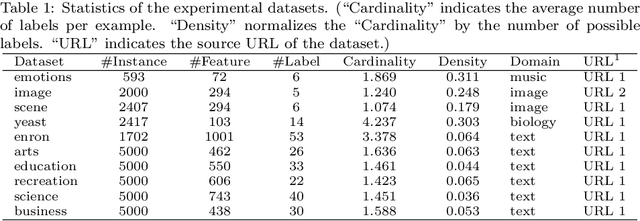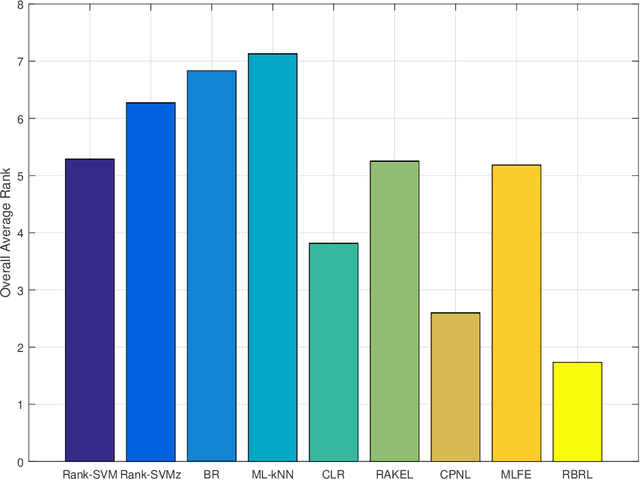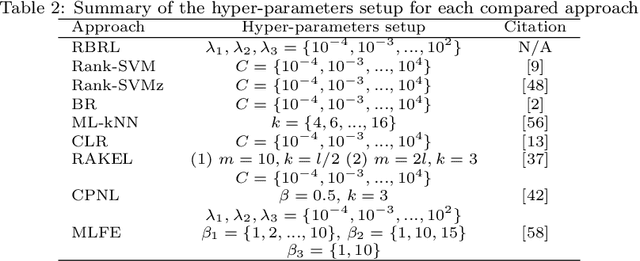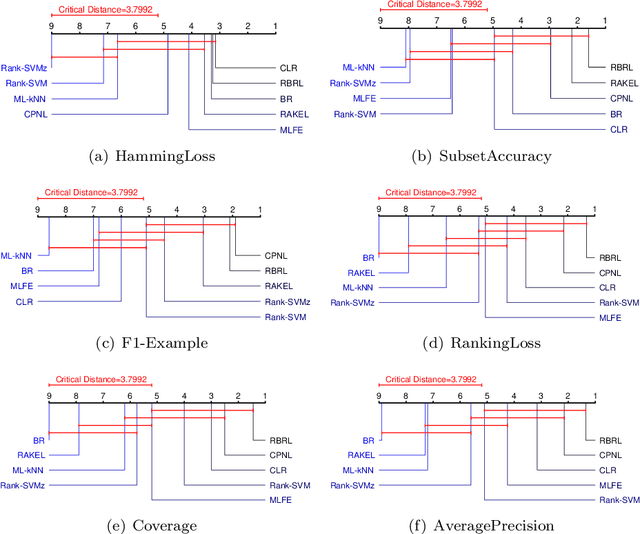Dalian Liu
Joint Ranking SVM and Binary Relevance with Robust Low-Rank Learning for Multi-Label Classification
Nov 05, 2019



Abstract:Multi-label classification studies the task where each example belongs to multiple labels simultaneously. As a representative method, Ranking Support Vector Machine (Rank-SVM) aims to minimize the Ranking Loss and can also mitigate the negative influence of the class-imbalance issue. However, due to its stacking-style way for thresholding, it may suffer error accumulation and thus reduces the final classification performance. Binary Relevance (BR) is another typical method, which aims to minimize the Hamming Loss and only needs one-step learning. Nevertheless, it might have the class-imbalance issue and does not take into account label correlations. To address the above issues, we propose a novel multi-label classification model, which joints Ranking support vector machine and Binary Relevance with robust Low-rank learning (RBRL). RBRL inherits the ranking loss minimization advantages of Rank-SVM, and thus overcomes the disadvantages of BR suffering the class-imbalance issue and ignoring the label correlations. Meanwhile, it utilizes the hamming loss minimization and one-step learning advantages of BR, and thus tackles the disadvantages of Rank-SVM including another thresholding learning step. Besides, a low-rank constraint is utilized to further exploit high-order label correlations under the assumption of low dimensional label space. Furthermore, to achieve nonlinear multi-label classifiers, we derive the kernelization RBRL. Two accelerated proximal gradient methods (APG) are used to solve the optimization problems efficiently. Extensive comparative experiments with several state-of-the-art methods illustrate a highly competitive or superior performance of our method RBRL.
* 57 pages, 5 figures, to be published in the journal of Neural Networks
 Add to Chrome
Add to Chrome Add to Firefox
Add to Firefox Add to Edge
Add to Edge